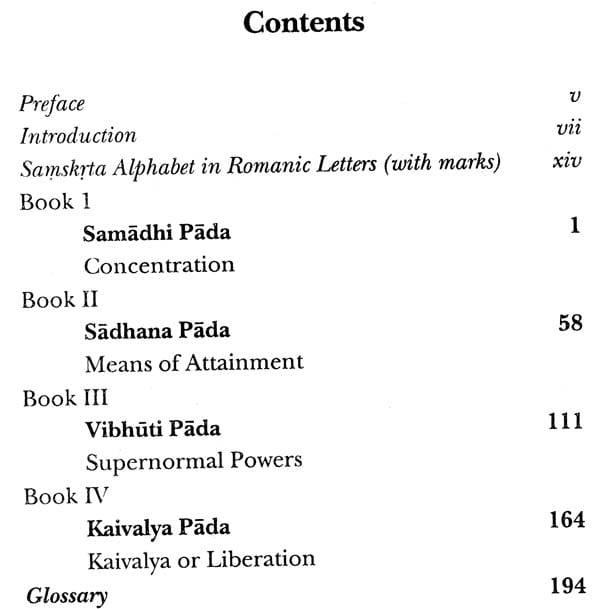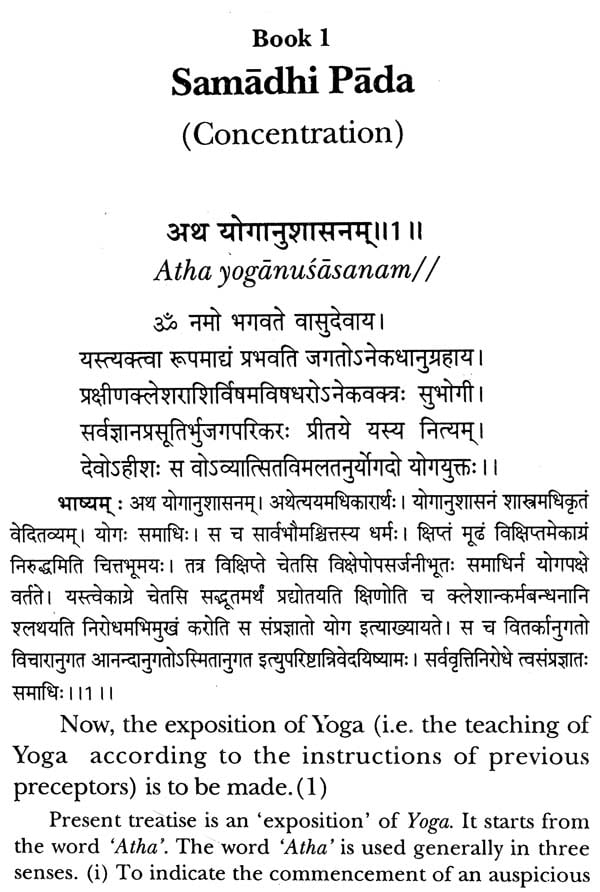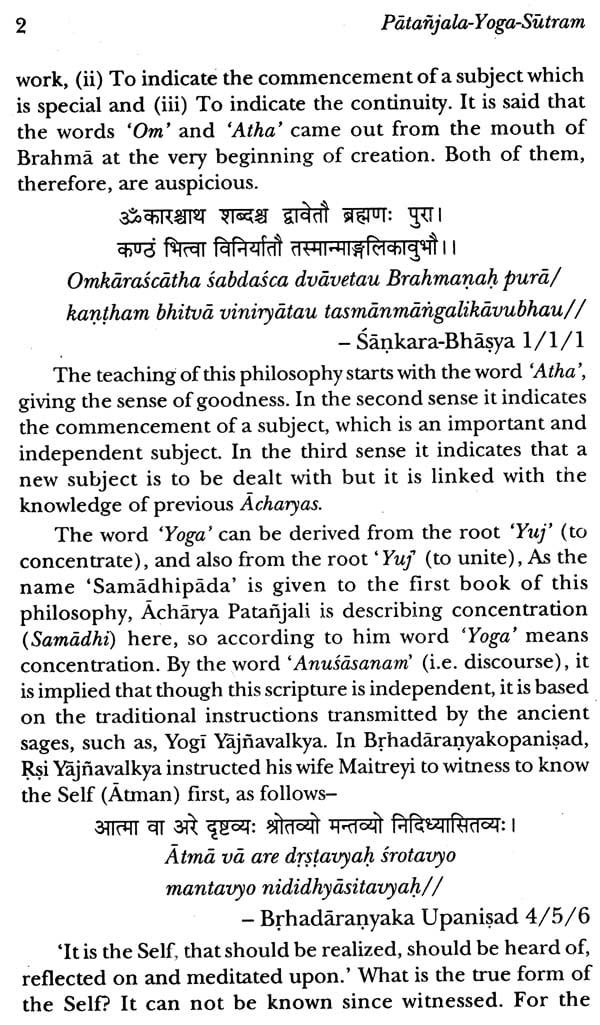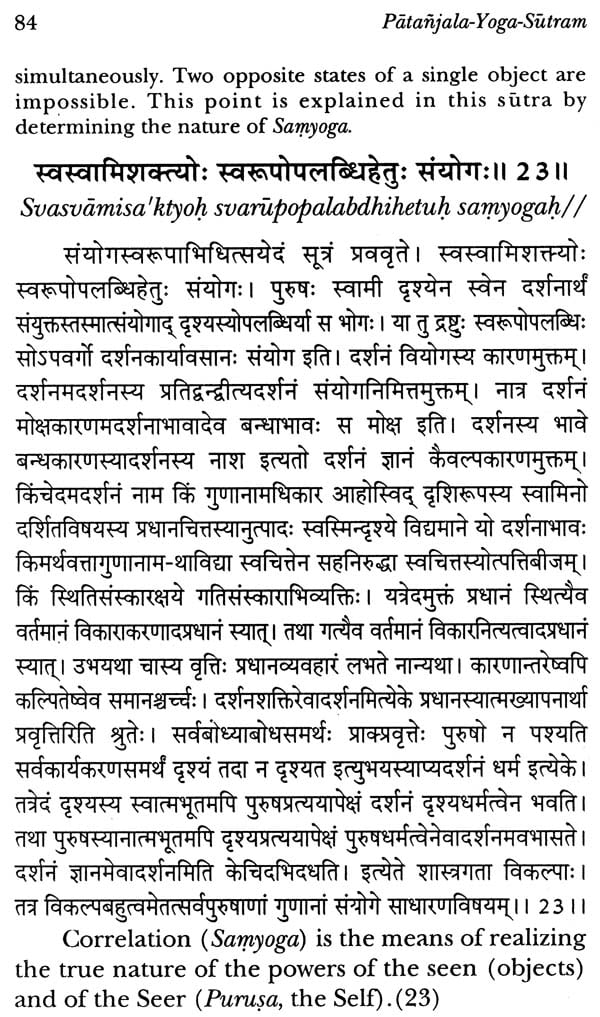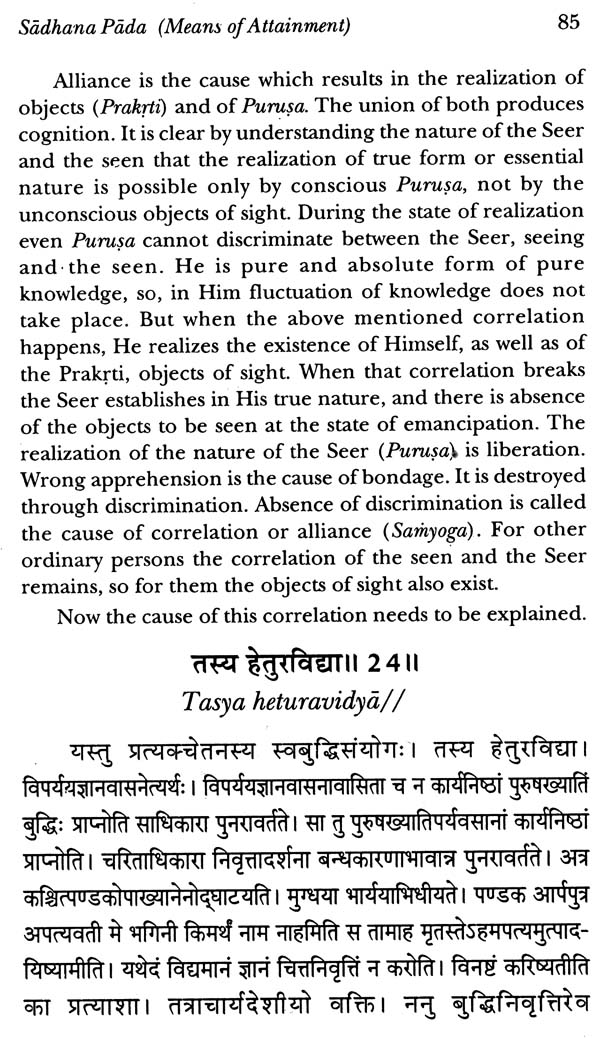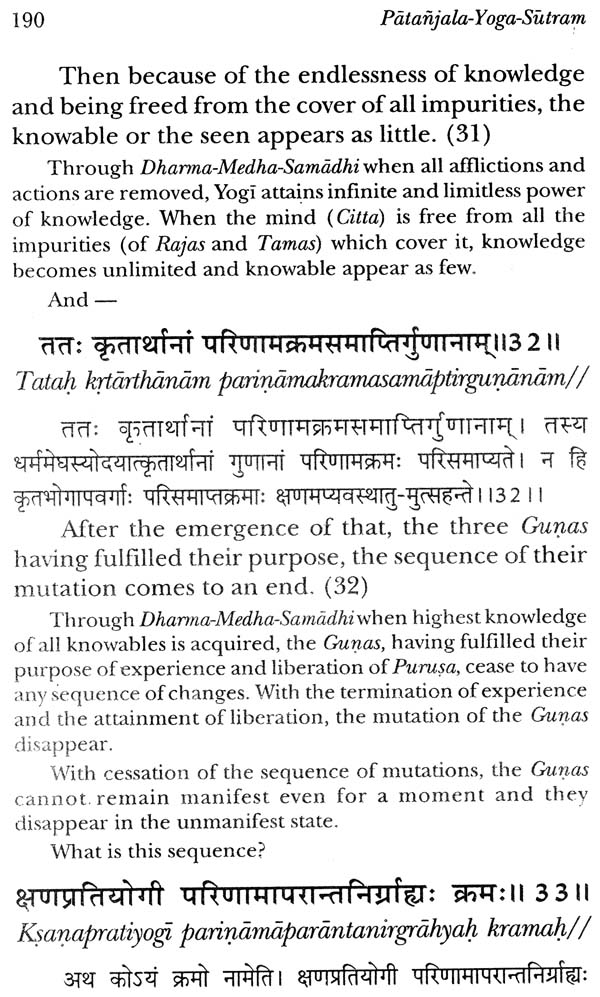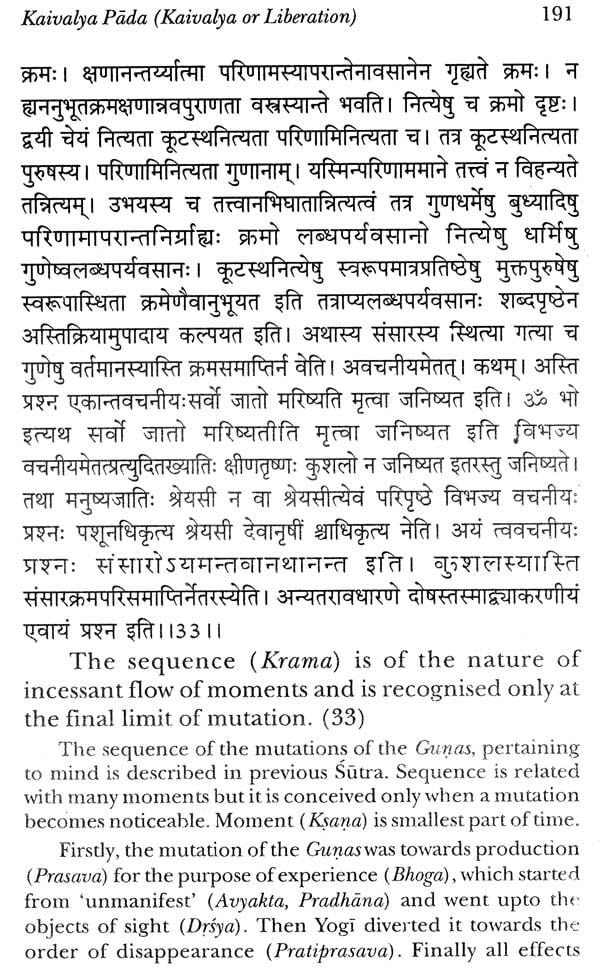
पातञ्जलयोगसूत्रम्: Patanjala Yoga Sutram- Yoga Philosophy of Patanjali (Containing Sanskrit Sutras,their Transliteration, Meaning and Commentary in English with Original Vyasa-Bhasya)
Book Specification
| Item Code: | NAY972 |
| Author: | Shashi Tiwari |
| Publisher: | NEW BHARATIYA BOOK CORPORATION |
| Language: | SANSKRIT TEXT WITH ENGLISH TRANSLATION |
| Edition: | 2021 |
| ISBN: | 978813154642 |
| Pages: | 205 |
| Cover: | HARDCOVER |
| Other Details | 9.00 X 5.50 inch |
| Weight | 410 gm |
Book Description
We have observed that a large number of inquisitive people are diligently pursuing this ancient text to understand the mysteries of 'eternal life', as well as for being healthy, happy and living a soothing life. A careful study of the Yoga-Sutras of Patanjali is needed to answer many questions of human life. This edition with English commentary is brought out with the intention to interpret Yoga-Sutras in a simple way for the curious readers.
After going through a couple of well-known ancient and modern commentaries, the author has followed the original commentary of Vyasa as the main source. It is included for the use of Sanskrit-students. Transliteration of Sutras will help those who are not well-versed in Sanskrit.
We hope that this publication will inspire readers to partake in deeper study of Yoga techniques of ancient India.
Dr. Tiwari has published over thirty-four books related to research and higher studies. Among her awarded books include: Rigvediya Apri-Sukta, Surya-devata, Sanskrit Sahitya ka Itihas, Sanskrit Lokokti Kosha, Rigvaidika Adhyayana. Her recently published book entitled 'Vedavyakhya-paddhatayah' is a great contribution to Vedic Studies. Dr. Shashi Tiwari has been honoured with more than twenty-seven academic awards from various academic institutions for her research, publication and other academic activities. She has participated in numerous International conferences in the USA, Canada, Italy, South Korea etc. She has organized more than two dozen conferences in different parts of India in the capacity of Gen. Secretary / President of WAVES.
The Yoga is a science and philosophy. The science of Yoga does not require the support of any science or philosophical system to uphold its claims. Its concepts are based upon the eternal laws of advanced inner life. They were known and practiced by ancient’s seers and still today saints with purity of mind enjoy to follow them. Through the acceptance and practice of its technique one can obtain fundamental changes in one's life, behaviour and thinking.
Today we find many commentaries and Bhasyas on Yoga-Sutras of Patanjali in Sanskrit, Hindi and other languages. Among various commentaries, the commentary (Bhasya) of Vyasa, Tika of Vacaspati Mishra, and Vrtti of Bhojadeva are considered most authentic.
In the Yoga Philosophy man is considered an entity, created by the union of three- mind, body and Self (Atman). After knowing the relation of these, one obtains purification, and finally achieves a blissful state. The mind is very fluctuating and instable. Technique of Yoga restrains its modifications and makes it peaceful. There are two important aspects of creation -Animate (Cetana) and inanimate (jada).The inanimate (jada) aspect is also called Mula- prakrti, Pradhana or Avyakta. Its manifested (Vyakta) form is whole creation. The aspect which brings consciousness in this is called Purusa. The Purusa or Atman is always conscious, and different from Mida-prakrti. There is a third aspect in Yoga philosophy which is called Isvara. It is above Prakrti and Purusa.
Book's Contents and Sample Pages
